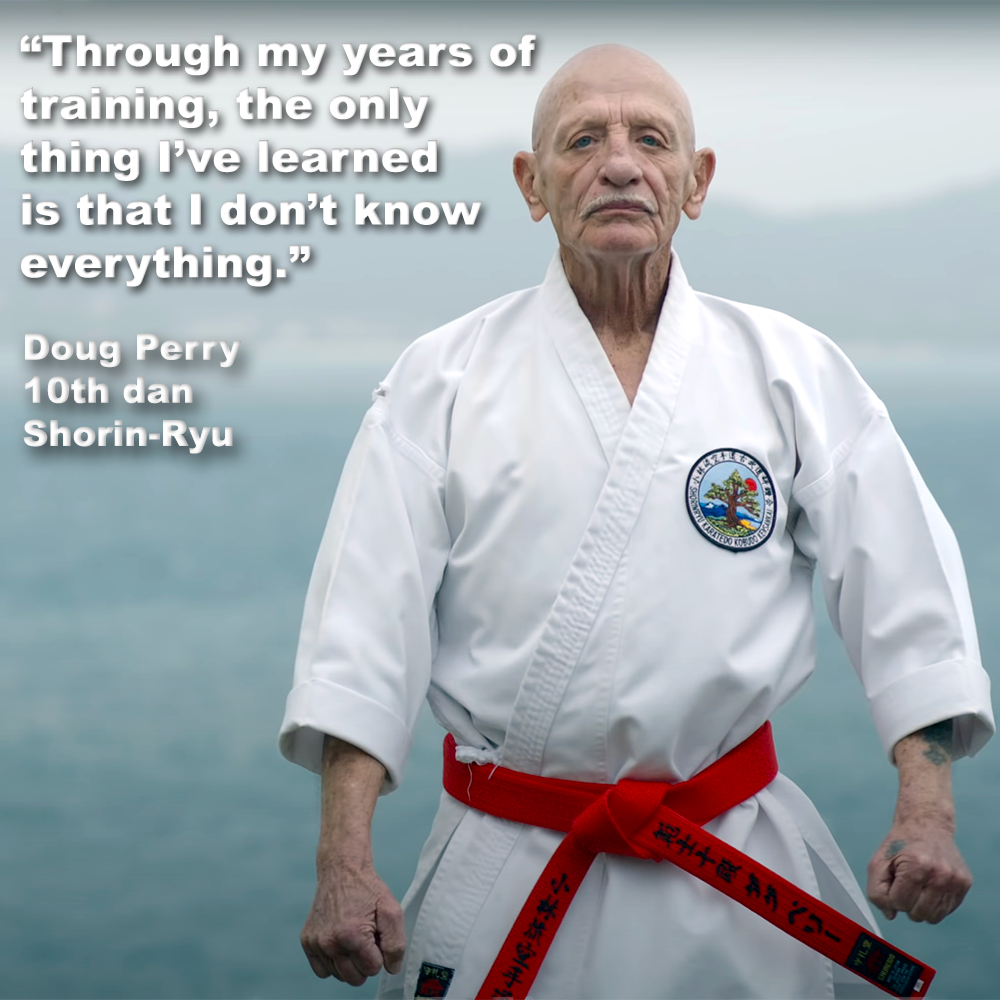
Remember being in the dojo and feeling like you would absolutely die if you were called on when you didn’t know the answer? From an early age, we’re conditioned to be afraid of not knowing something we should.
.
Unfortunately, this fear often prevents us from seeking help when we need it. We worry that, by asking questions, we might look stupid, uninformed, or incompetent.
.
Problem is, when we don’t ask the questions we should, we keep ourselves less informed and less competent. This is an especially alarming tendency for some instructors, who spend the majority of their lives plunging into the unknown and believing that they know all there is to learn.
.
Within the dojo, hidden amongst the principles, techniques, drills, and kata, lies a hidden challenge….. admitting you don’t know everything.
.
Why is it so difficult for some to utter these three words? The simple “I don’t know”, perhaps it feels like a crack in their armor, a sign of weakness.
.
Maybe it stems from the very nature of martial arts training. We are encouraged to excel, to master intricate kata sequences, discover the ’bunkai’, dissect complex principles, and execute techniques and drills with precision.
.
You may fear that saying “I don’t know” will expose you to judgment, casting doubt on your dedication, or revealing gaps in your knowledge.
.
But the human ego, that formidable opponent we face both in and out of the dojo, plays a role in this reluctance to admit you may not know everything.
.
The fear of appearing as if your lacking in knowledge, of being judged by peers, instructors, or even ourselves, can be inhibiting. The competitive nature of martial arts training can exacerbate this fear, creating a culture where the desire for more, often trumps genuine understanding.
.
You can become consumed with the pursuit of external validation, trying to convince others that you need the next black-belt, prioritizing the appearance of mastery over actually learning in depth.
.
Admitting you don’t actually know the answer to something isn’t weakness, it’s a key to unlocking your potential, a stepping stone to deeper understanding. It allows you to ask questions, explore new things, and push yourself beyond what you thought you knew, and out of your comfort zone.
.
Remember, the journey of martial arts is not a sprint, but a marathon. It’s a continuous process of refining, of learning, of unlearning, and of shedding that big ego to embrace the ever-expanding landscape of what you don’t know.
.
So, the next time the familiar fear of admitting you don’t know something arises, remember the words of the philosopher Lao Tzu: “The journey of a thousand miles begins with a single step.” And sometimes, that single step is the courage to utter three simple words: “I don’t know.”
.
Don’t reinvent the wheel if you don’t have to – instead, benefit from the experience and knowledge that your peers have already accumulated. By asking for their help and advice, you’re bound to get better, more complete information than you could find on your own. Additionally, YouTube is not a substitute for a knowledgeable mentor.
.
As the saying goes, true wisdom begins with the acknowledgment of what you do not know.
.
“Through my years of training, the only thing I’ve learned is that I don’t know everything.” – Doug Perry 10th dan Shorin-Ryu
.
.
Photo Credit: Courtesy of Doug Perry 10th dan Shorin-Ryu
.
